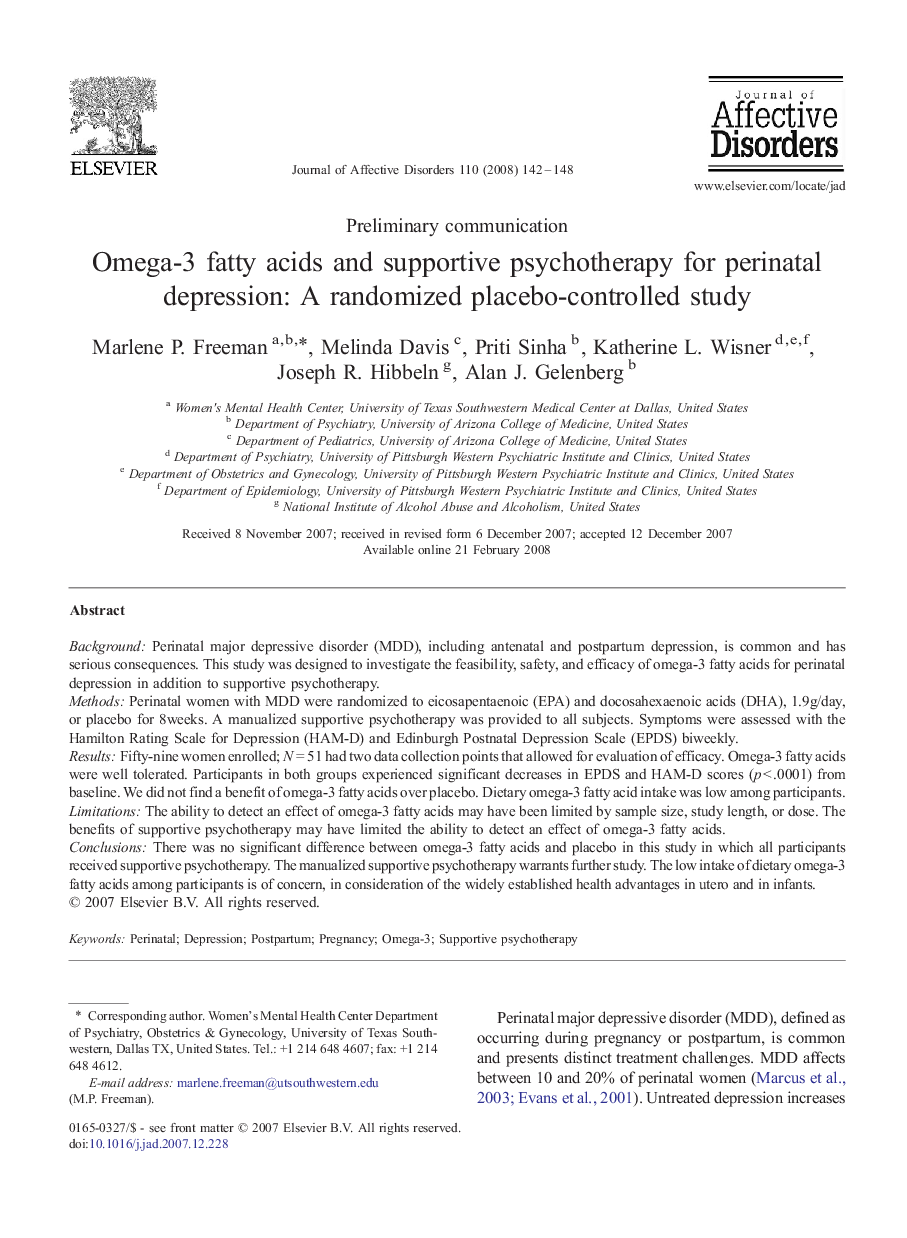| Article ID | Journal | Published Year | Pages | File Type |
|---|---|---|---|---|
| 4187404 | Journal of Affective Disorders | 2008 | 7 Pages |
BackgroundPerinatal major depressive disorder (MDD), including antenatal and postpartum depression, is common and has serious consequences. This study was designed to investigate the feasibility, safety, and efficacy of omega-3 fatty acids for perinatal depression in addition to supportive psychotherapy.MethodsPerinatal women with MDD were randomized to eicosapentaenoic (EPA) and docosahexaenoic acids (DHA), 1.9g/day, or placebo for 8weeks. A manualized supportive psychotherapy was provided to all subjects. Symptoms were assessed with the Hamilton Rating Scale for Depression (HAM-D) and Edinburgh Postnatal Depression Scale (EPDS) biweekly.ResultsFifty-nine women enrolled; N = 51 had two data collection points that allowed for evaluation of efficacy. Omega-3 fatty acids were well tolerated. Participants in both groups experienced significant decreases in EPDS and HAM-D scores (p < .0001) from baseline. We did not find a benefit of omega-3 fatty acids over placebo. Dietary omega-3 fatty acid intake was low among participants.LimitationsThe ability to detect an effect of omega-3 fatty acids may have been limited by sample size, study length, or dose. The benefits of supportive psychotherapy may have limited the ability to detect an effect of omega-3 fatty acids.ConclusionsThere was no significant difference between omega-3 fatty acids and placebo in this study in which all participants received supportive psychotherapy. The manualized supportive psychotherapy warrants further study. The low intake of dietary omega-3 fatty acids among participants is of concern, in consideration of the widely established health advantages in utero and in infants.
